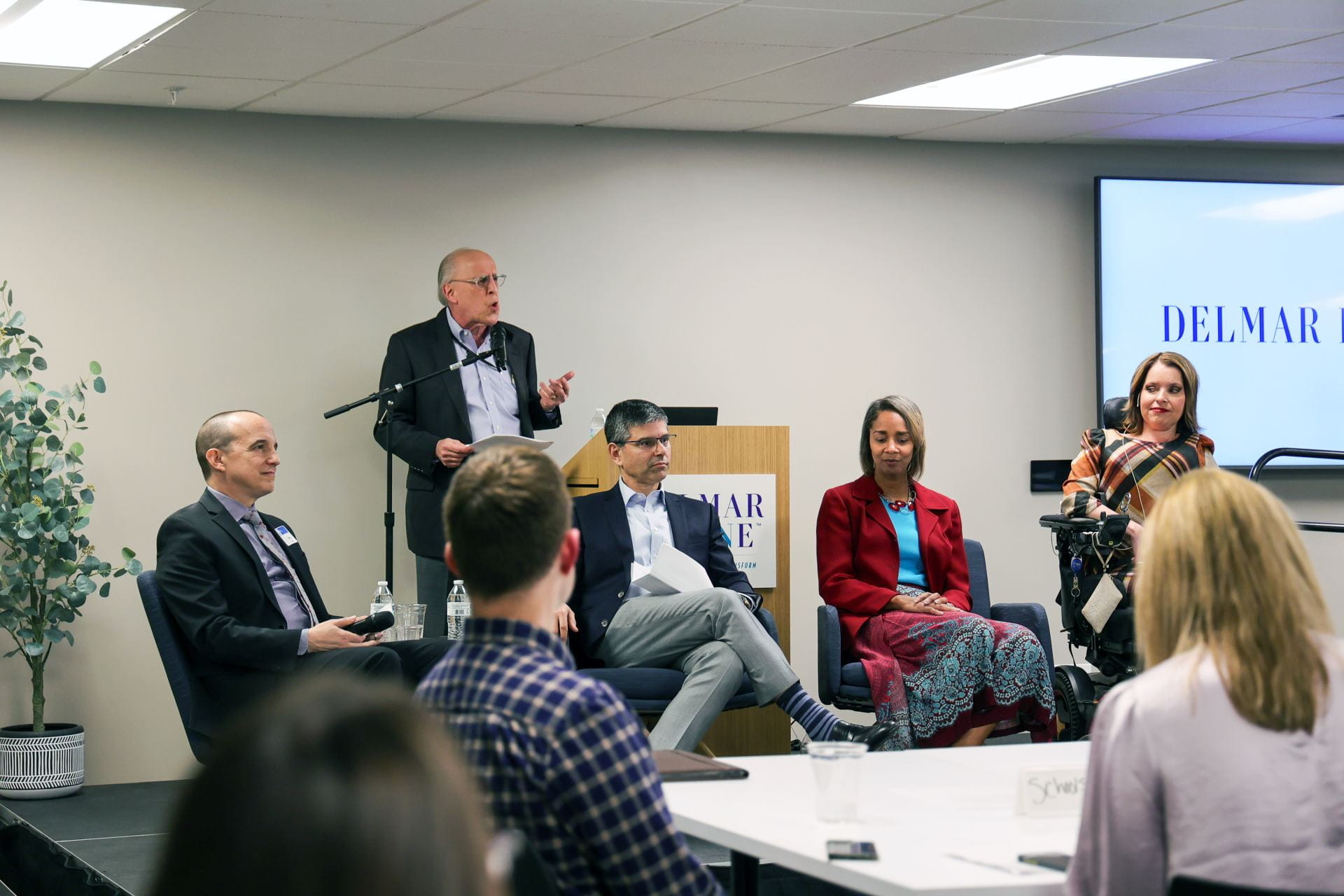This story was written by Jorge Riopedre, Executive Director of the Delmar DivINe.

There was a great turnout for our latest edition of INsights, which focused on nonprofit lobbying and advocacy.
Gary Parker, Associate Dean for External Affairs at the Brown School at Washington University, moderated an expert panel that discussed strategies for charitable organizations to engage in advocacy and lobbying to push for systemic changes that align with their missions.
David Winton, founder and president of Winton Policy Group, led off by acknowledging that, “There are restrictions around what nonprofits can do and how they can do it. But every nonprofit has the ability to advocate for the things that are part of their mission. And it’s not only spending money. It’s going to Jefferson City, bringing a group of people to city council meetings; that is absolutely appropriate. Not only appropriate, it’s necessary.”
Lora Gulley, director of community mobilization and advocacy for Generate Health, agreed, saying, “There’s a lot of different ways to advocate. Advocacy can be seeking something at the state level. It can look like changing something in your local community, or in your neighborhood. The most important thing is creating a sense of agency. Once you understand what your voice can accomplish, that you can create change, look out!
“There’s a lot of different ways to advocate. Advocacy can be seeking something at the state level. It can look like changing something in your local community, or in your neighborhood. The most important thing is creating a sense of agency. Once you understand what your voice can accomplish, that you can create change, look out!
Lora Gulley, Director of Community Mobilization and Advocacy for Generate Health
That resonated with Aimee Wehmeier, president of Paraquad, “It was 2016 that I first realized what that fire within you could do. There were proposals for major cuts to home and community- home based services that directly affected people like me and others who used Medicaid funded personal care. I testified in the Missouri Senate. The day of the vote [a senator] came by me and said, ‘Everything is going to be fine.’ And the cuts were avoided.”
Wehmeier went on to emphasize the importance of identifying the right person to speak on behalf of an issue. “There are many issues I am qualified to speak about, but when it comes to an issue as important as transit for example, I don’t use public transportation so it’s not appropriate for me to be the one to speak about it. Having the folks who are most impacted by a given issue is the right approach. One of the reasons I had so much impact in 2016 is that I personally used Medicaid. I wasn’t what the senators thought of when they imagined who Medicaid users were. So being able to share a personal story creates the opportunity to make change happen.”
During the question & answer session an attendee asked if there were any recommendations on how to work with the corporate sector to help activate policy change that would later influence the legislative process. Gary Parker noted that the Clark-Fox Policy Institute had issued a three-part series on the subject of lack of access to paid leave. Part of the hope is that corporations will take action on this issue, and that it will build momentum for action in the Missouri Assembly.
Another audience member questioned how much impact nonprofit advocacy could really have due to the state of politics in the state capitol. The panelists acknowledged that it is a difficult environment, but Wehmeier posed her own question. “What’s the alternative to not advocating? You can pour endless buckets of money towards services, because the need is there. But at the end of the day if you don’t alter policies, if you don’t affect the system, you’re never going to make change happen.”







This event was co-sponsored by the Delmar DivINe and the Clark-Fox Policy Institute.